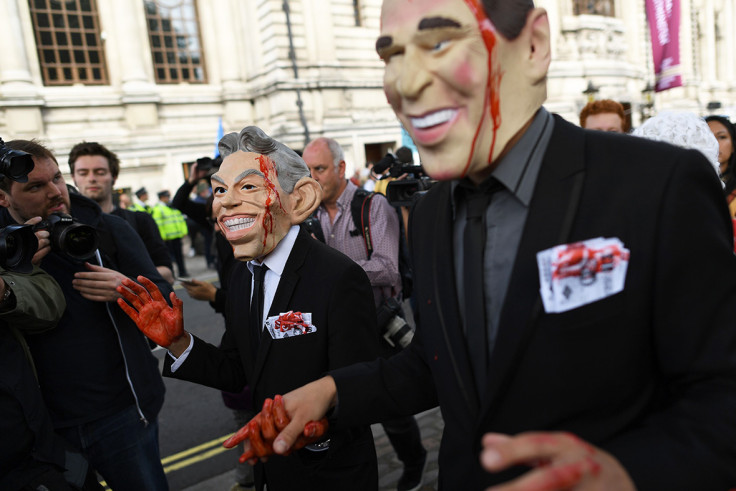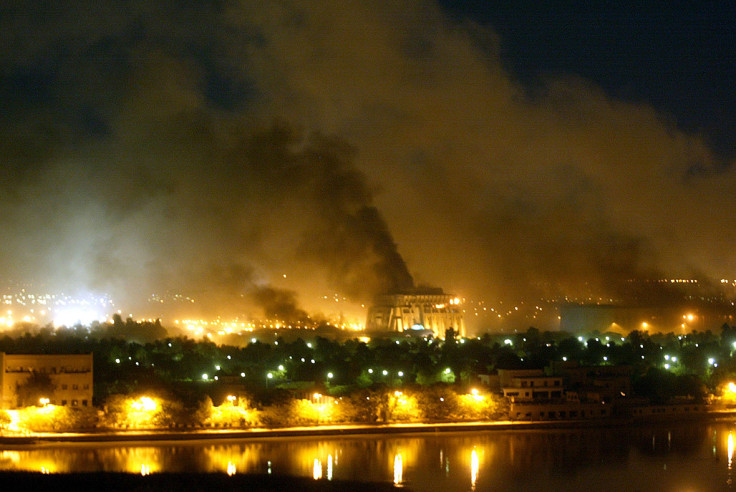Chilcot report: Highlights from Iraq war memos between Tony Blair and George Bush
Blair told Bush: "I will be with you, whatever."
A collection of redacted memos between former UK and US leaders Tony Blair and George Bush have been released following the publication of the long-awaited Chilcot report. The exchanges were made between 2002 and 2007 and they can be seen alongside the Chilcot report, which contains some 2.6m words.
Blair with Bush, no matter what
On 28 July 2002, Blair sent Bush a note. It said: "I will be with you, whatever. But this is the moment to assess bluntly the difficulties. The planning on this and the strategy are the toughest yet. This is not Kosovo. This is not Afghanistan. It is not even the Gulf War. The military part of this is hazardous but I will concentrate mainly on the political context for success."
Among Chilcot's key findings was that "Blair's Note, which had not been discussed or agreed with his colleagues, set the UK on a path leading to diplomatic activity in the UN and the possibility of participation in military action in a way that would make it very difficult for the UK subsequently to withdraw its support for the US."
Overthrowing Saddam Hussein
On whether getting rid of dictator Saddam Hussein was the right thing to do, Blair wrote it is the "...the right thing to do. He is a potential threat. He could be contained. But containment ... is always risky. His departure would free up the region. And his regime is ... brutal and inhumane."

Risks and repercussions
In the memo, the former Labour prime minister did draw attention to the dangers of "unintended consequences".
He wrote: "Suppose it got militarily tricky. Suppose Iraq suffered unexpected civilian casualties. Suppose the Arab street finally erupted eg in [...] Suppose Saddam felt sufficiently politically strong, if militarily weak in conventional terms, to let off WMD.
"Suppose that, without any coalition, the Iraqis feel ambivalent about being invaded and real Iraqis ... decide to offer resistance. Suppose ... that any difficulties, without a coalition, are magnified and seized on by a hostile international opinion. If we win quickly, everyone will be our friend. If we don't ... recriminations will start fast.
"None of these things might happen. But they might ... And there is one other point. We will need to commit to Iraq for the long term. Bedding down a new regime will take time. So, without support, the possibility of unintended consequences will persist through and beyond the military phase."

Was British action in Afghanistan taken into consideration?
Blair told Bush that Afghanistan was "our one act of regime change so far, so it had better be a good advertisement". His "hunch" was that it required "renewed focus and effort".
The military plan
"Finally, obviously, we must have a workable military plan. I don't know the details yet, so this is first blush," wrote Blair. "The two options are running start and generated start.
"The first has the advantage of surprise; the second of overwhelming force. My military tell me the risks of heavy losses on the running start make it very risky. Apparently it involves around 15-20,000 troops striking inside Iraq, with heavy air support. The idea would be to catch the regime off balance, strike hard and quickly and get it to collapse. The obvious danger is [that] it doesn't collapse. And there is the risk of CW [chemical weapons] being used.
"For that reason, a generated start seems better. It could always be translated into a more immediate option, should Saddam do something stupid. Also, the build-up of forces in such numbers will be a big signal of serious intent to the region and help to pull people towards us and demoralise the Iraqis. This option allows us to hammer his air defences and infrastructure; to invade from the South and take the oilfields; to secure the North and protect/stabilise the Kurds. Then effectively with huge force we go on to Baghdad."
Blair's conclusion
"We would support in any way we can." He added that "the crucial issue is not when, but how."
© Copyright IBTimes 2025. All rights reserved.






















